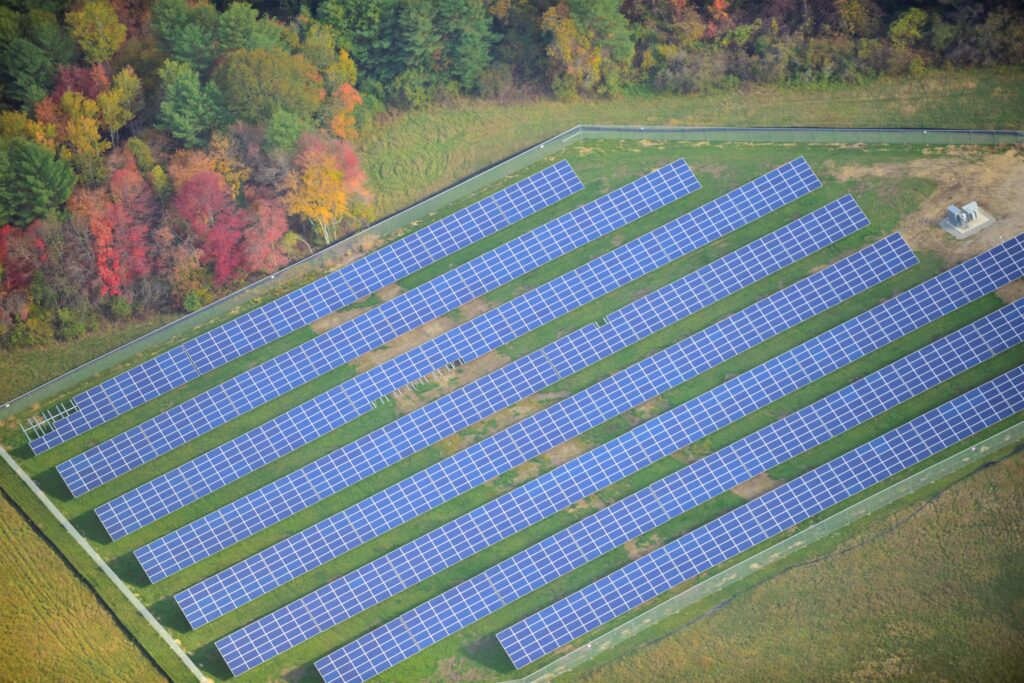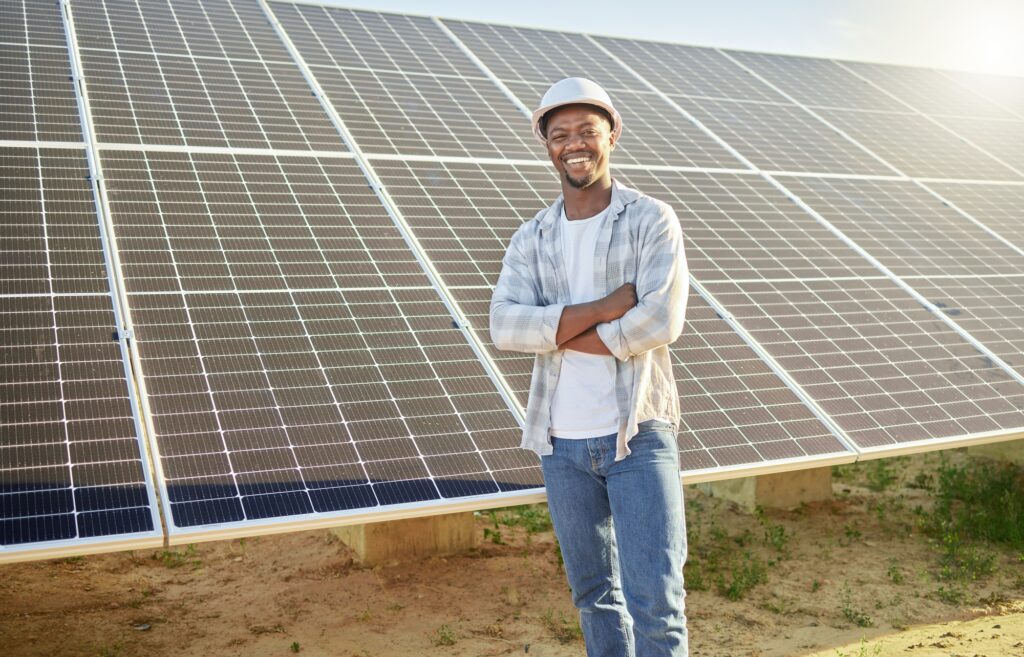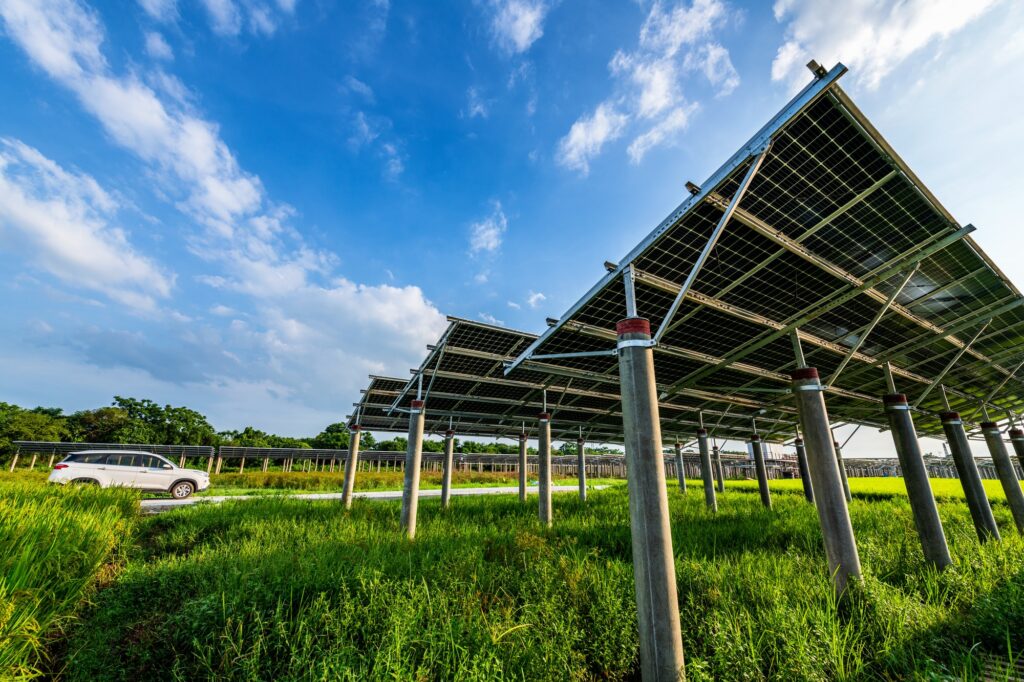solargardens
December 20, 2023
Solar gardens, also known as “solar farms” or “community solar projects” have been a popular topic of discussion in the renewable energy space recently. You’ve probably driven by one of these large-scale solar installations or seen them in advertisements and wondered about their significance. We’re here to help you understand what they are in this article.

A solar garden is a centralized solar (PV) installation that generates and supplies clean energy to the connected power grid. This energy is then distributed to multiple individuals who subscribe to that project.
These solar gardens are responsible for providing utility companies with clean, renewable energy, rather than the utility getting its energy from power plants, which often burn coal, gas, or oil to create power.
These expansive arrays of solar panels are strategically positioned to capture sunlight and convert it into clean, sustainable electricity. Participants subscribe or purchase a portion of the solar energy produced, reaping the rewards of solar power without the hassle of maintaining personal panels.
Each solar garden can vary in size and location but they often range across 10-100 acres of land or are built on top of commercial buildings. They can consist of thousands of solar panels and produce anywhere between 1-10 MW of energy on average.
Check out this video of a Syncarpha-developed solar garden in Northampton, Massachusetts.
The importance and popularity of solar gardens can be attributed to several compelling factors. First and foremost, they offer an inclusive pathway for individuals who might face obstacles in installing solar panels on their properties. Whether due to shading, renting their residence, or financial constraints, solar gardens democratize access to renewable energy through a growing, State-specific program called Community Solar.
Moreover, solar gardens align with the growing consciousness towards sustainability and eco-friendly initiatives. They allow participants to reduce their carbon footprint while contributing to the local clean energy grid. Additionally, these projects often foster collaboration within communities, promoting a sense of shared responsibility toward a greener future.
Solar gardens offer a range of benefits to various energy off-takers:
Homeowners: Those unable to install solar panels on their homes due to shading, space limitations, or financial ability can benefit from solar gardens, accessing clean energy without the hassle associated with rooftop panels.
Renters: Individuals residing in rented properties typically can’t install solar panels. Solar gardens provide an opportunity for renters to tap into renewable energy without ownership constraints.
Businesses: Commercial entities, regardless of property limitations or building constraints, can subscribe to a community solar garden to reduce energy costs and demonstrate their commitment to sustainability.
Low-Income Communities: Solar gardens often prioritize providing affordable energy options to underserved communities, promoting energy equity and accessibility. It’s also common that low-income subscribers can save even more on electricity than standard subscribers, as community solar providers offer bigger discounts on clean energy credits.
Local Governments and Utilities: Solar gardens contribute to diversifying energy sources and achieving renewable energy targets set by local governments and utility companies, fostering a cleaner energy portfolio for communities.
Environment and Society: Collective use of solar energy reduces carbon emissions, mitigating the environmental impact of traditional energy sources and fostering a more sustainable society.
In essence, Solar gardens offer an inclusive approach to solar power, extending its benefits to a diverse range of participants, irrespective of property ownership or financial capabilities.

Joining a community solar garden typically involves a few simple steps:
Locate A Nearby Project: You can start by searching for a nearby project online. Try Googling “solar gardens near me” or “join community solar” to browse available projects in your area that are connected to your electric utility grid. We also recommend visiting Energysage.com – a site that lets individuals browse and compare a variety of community solar providers.
Check Eligibility: After locating a project, review the eligibility criteria for participation. Requirements may vary but often include residency within a specific area or utility service region.
Sign Up or Subscribe: Follow the provider-specific instructions to begin your sign-up process. Most providers make this process very easy for individuals. It helps to have a recent electric bill on hand to accelerate the process, and typically providers require you to upload a payment method (for your discounted clean energy credits) and to sign a subscription agreement.
Review Terms and Benefits: Carefully review the terms, including subscription costs, billing details, and the benefits you’ll receive (such as energy credits or reduced electricity costs).
Confirm and Participate: Once you’ve understood the terms and are comfortable with the agreement, confirm your participation. You may receive confirmation and details about how your subscription will appear on your utility bill.
Enjoy Solar Benefits: Once you’re enrolled, you’ll start receiving the benefits of solar energy production, either through credits on your utility bill or discounted energy, depending on the project’s structure.
It’s advisable to conduct thorough research and reach out to the specific community solar provider you’re interested in for precise details on their enrollment process, subscription options, and any associated costs or benefits.

As the allure of sustainability continues to resonate, solar gardens represent the collective progress towards a cleaner, more sustainable future. Their ability to democratize access to solar power, foster community engagement, and mitigate environmental impact renders them a cornerstone of the renewable energy landscape.
Join Community Solar with Solar Gardens to redeem this offer
- Enter your contact info to receive your promo code -